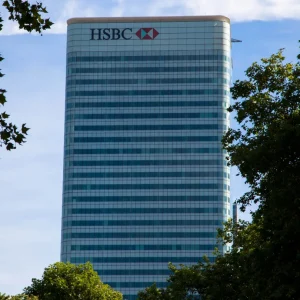The poll assessed customers’ responses to some of the common tactics used by criminals, over the phone, via email or via text. Based on the answers, the BBA calculates that people all over the country could fall foul of the most prevalent frauds around:
* 8 million vulnerable to "vishing" or voice phishing
* 4 million might transfer money into another supposed "safe" account if instructed
* 3 million could be willing to carry out "test transactions" online
* 1.7 million would pass their bank card over to a courier on their doorstep if they carried some form of ID card
To counter this, the UK retail banks – with the support of law enforcement bodies, including the City of London Police and the National Crime Agency – have produced a new leaflet and are launching an awareness drive called Know Fraud, No Fraud in order to help their customers spot the difference between a legitimate call and a call from a fraudster.
The leaflet includes eight things your bank would never ask you (but a fraudster might), advice on how to avoid becoming a victim and instructions on what to do if you do get caught out. It will be available across the country in bank branches and police stations and also on the Know Fraud, No Fraud website – www.knowfraud.co.uk.
The leaflet sets out eight things your bank will NEVER ask you to do:
* Ask for your full PIN number or any online banking passwords over the phone or via email
* Send someone to your home to collect cash, bank cards or anything else
* Ask you to email or text personal or banking information
* Send an email with a link to a page which asks you to enter your online banking log-in details
* Ask you to authorise the transfer of funds to a new account or hand over cash
* Call to advise you to buy diamonds, land or other commodities
* Ask you to carry out a test transaction online
* Provide banking services through any mobile apps other than the bank’s official apps.
Anthony Browne, Chief Executive of the BBA said:
"Being defrauded is a devastating experience for anyone which is why we are launching this campaign. The more people know about fraud, the less likely they are to become victims. "Our Know Fraud, No Fraud campaign will help you spot some of the tactics used by scammers. Your bank would never send someone to your home to collect your cash or ask you to transfer funds to a new account. "If you suspect you have become the victim of fraud please contact Action Fraud and your bank as soon as you can. Specially-trained staff will be able to advise on what to do next."
City of London Police Commander Steve Head, who is the Police National Coordinator for Economic Crime, said: "Fraud and cyber-crime is costing the UK tens of billions of pounds each year, causing significant damage to big businesses, destroying smaller businesses and ruining many individual lives. Criminals are also exploiting the technological and internet revolution to target people of all ages and from all walks of life with ever more sophisticated and convincing scams, increasingly delivered directly into the home via telephone, mobiles, laptops and tablets.
"The key to creating a safer society and stopping the fraudsters in their tracks is law enforcement working in close collaboration with government and the public and private sector to raise awareness of current and future threats and to disrupt and dismantle the networks and enablers that are facilitating much of this criminality. The BBA’s campaign to flag up the most prevalent scams against bank customers and to provide advice on how to avoid becoming the next victim is another important step in the right direction and is fully supported by the City of London Police, in its role as the National Policing Lead for Fraud."
Nigel Kirby, Deputy Director of the Economic Crime Command, said: "Prevention is vitally important in the UK’s fight to cut fraud and the NCA fully supports this campaign which gives people the information they need to protect themselves. If you are familiar with the ways that criminals try to scam you, then you are far less likely to become a victim of the fraudsters."






